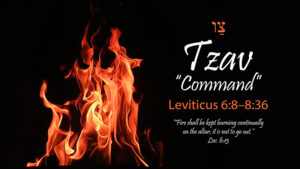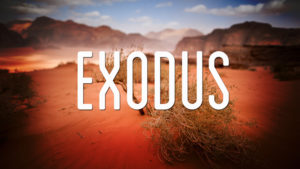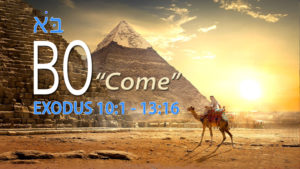 To Approach God
To Approach God
One question that is repeatedly asked is,”How do I approach God”? There is always a new experience being set forth as the answer to this quest. Sometimes it is a new “baptism”. At another time it may be experiences with angelic beings. Others maintain that it is accomplished by fasting. However, we are gradually realizing that God has outlined a specific plan of “approach” to His presence. This plan has been set before us in the Scriptures; yet, we have not recognized it. We will outline God’s plan for our approach to Him.
Adam and Eve walked in the presence of God in the garden; approach to God was not a problem. After the transgression, they were sent out of the garden and the approach to God was prevented by the Cherubim. From this time forward, man has sought the answer to the question of how to approach God. One Bible teacher, several years ago proclaimed that we can never understand just how far Adam fell until we begin the return to the presence of God.
Korban
We ought to refer to Levitical offerings and sacrifices as “Levitical Korban”. Each “Korban” ought to be understood as an essential step to be walked out in our approach to God. We must embrace the concept that the steps of “Korban” are based on an orderly, surrendered, consecrated faith-walk rather than a ritual offering which magically confers upon us special position or experience. So rather than appeasing God with some “offering or sacrifice”, these steps of “Korban” represent the Godly empowerment for maturation in salvation that we must experience in order to draw near to God.
Real Life Experiential Approach to God
We will describe the approach to God in the sequence that we experience it. The Book of Leviticus lists each of the five steps of Korban from the perspective of God, i.e. from God out to man. Our experience is just the opposite. We start our approach to God from the position of sin and trespass and proceed through the steps of “Korban” to the “Olah” (unfortunately called the burnt offering).
The first step is the “Ahsham Korban” (also called the guilt or trespass offering). The real life experience associated with this step of approach is becoming aware of, admitting to, dealing with the consequences of, and repenting from sin which has resulted in damage or harm to others. We make repentance toward God and seek His forgiveness. We seek forgiveness of the people hurt, and we make restitution for damages that they have experienced.
The second step of our approach to God is called the “Chatah Korban” (also called the sin offering) and this consists of becoming conscious of and admitting to sin patterns against God. This is accomplished by our repenting from the activity and seeking forgiveness from the Lord. Both the “Ahsham Korban” and the “Chatah Korban” require a blood covering. To accomplish the purpose of this “Korban” we must believe that our sins and transgressions are thoroughly covered and that we are accepted in spite of our record of transgressions. We must believe that even our sorry record of sin can no longer hinder us from approaching God.
The third step of our approach is the “Shelamim Korban” (also called the peace offering) which deals with our communion with God. We surrender ourselves in praise and worship as we glorify His name. We experience His presence and, therefore, His peace. We come to the point that experiencing the presence of God is not an exceptional experience, i.e. we are “at home” in His presence.
The fourth step is the “Menchah Korban” (also called the meal or grain offering) which consists of making a “gift” of our time, talents and possessions to God. This step constitutes dedicated service unto the Lord. Jesus confessed, “My food is to do the will of Him who sent Me, and to accomplish His work” (John 4:34b). This reflects the “Menchah or Gift Korban”. Paul likewise exhorted the Roman church to “…present your bodies a living and holy sacrifice (Korban), acceptable to God, which is your spiritual service of worship” (Romans 12:1b).
The final step is the “Olah Korban” (also called the burnt offering) which signifies utter and complete dedication to the Lord. In this state of approach we “go up” (as Olah implies). We think of Elijah the prophet during the era of the Kings and Enoch in the pre-flood era in association with this “Korban”. They literally “went up” to God.
In the next study I will relate how true Christian worship and real discipleship serve a believer in the steps of “Korban”. These steps are not accomplished in a week-end seminar but rather in a disciplined walk throughout the lifetime of the believer. Since the “rapture teaching” is very popular with Christians, the “Olah Korban” ought to be of particular interest.
May the peace of the Holy One be upon you and may you experience a fruitful week. Shalom.
 In this section of the Bible we will consider three different themes: Shabbat, the Golden Calf incident and what I will call the “test of Messiah”. The first subject is the Shabbat. God declared:
In this section of the Bible we will consider three different themes: Shabbat, the Golden Calf incident and what I will call the “test of Messiah”. The first subject is the Shabbat. God declared:

 In this section of the Bible we have the account of the ultimate judgment of Egypt which led to the exodus of Israel from Egypt. God demonstrated that He was able to deliver His people from the strongest world power of that day. In the process, God executed judgment of the gods of Egypt in order to demonstrate His power.
In this section of the Bible we have the account of the ultimate judgment of Egypt which led to the exodus of Israel from Egypt. God demonstrated that He was able to deliver His people from the strongest world power of that day. In the process, God executed judgment of the gods of Egypt in order to demonstrate His power.